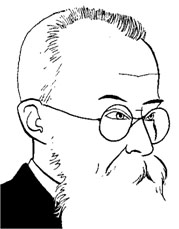
By John Helmer in Moscow
There is still time in the Moscow season to catch a performance
of Nikolai Rimsky-Korsakov’s last great opera, Zolotoi Petushok (“The
Golden Cockerel”). It may be the only way to sing in tune with the Russian
leadership, as it finalizes its agreement with the North
Atlantic Treaty Organization (NATO).
That’s if you can bear to watch one of the most artful political satires
in Russian musical culture disintegrate under pressure from today’s rules
of political correctness.
Mistaken by too many mothers as matinee material for their children, “The
Golden Cockerel” is as subversively adult today, as it was in 1908, when
Rimsky-Korsakov wrote it, only to find he’d offended the Tsar’s policemen
and censors. In June of that year, just two days before his death,
Rimsky-Korsakov was told the Governor-General of Moscow was blocking
production of the opera, and St Petersburg and Kiev were likely to follow.
The composer thought of appealing to his friends to open it in
Paris. He was dead before it reached the stage.
Of course, if you like your history of Nicholas II and Alexandra potted with
sanctimony, and regurgitated with bathos, stick to Eduard Radzinsky’s novel.
No tunes you can whistle there — and no laughs. Nor will you find anything
recognizable in Rimsky-Korsakov’s Tsar Dodon, who suspects everyone; listens
to noone; sets one advisor against another; is befuddled by passion; breaks
his word; kills his magician; and is killed himself, leaving his people more
vulnerable to their enemies than before.
The fact that in 1908 “The Golden Cockerel” was instantly understood
by musicians and politicians alike says something about perspicacity then —
and something about our musicians, historians, and politicians now.
Rimsky-Korsakov, the naval officer who became the youngest professor of
composition in Russia without ever formally studying a note, couldn’t
have imagined Viktor Chernomyrdin and Anatoly Chubais, Tatyana Dyachenko,
Boris Nemtsov, or the housekeepers and astrologers of today’s Kremlin.
Rimsky-Korsakov simply borrowed a fable of Pushkin’s, added his experience
of the Russian court and the Russo-Japanese war, and set a handful
of fanciful characters to motifs and melodies he collected from around the
Russian countryside.
Imagine President Yeltsin going to his afternoon nap, relying on a magician’s
rooster to warn him if NATO forces or nuclear weapons are being rushed into
the Poland? Could any of his military advisors possibly resemble
Dodon’s son, Tsarevich Alfon, who recommends luring Russia’s enemies
into a trap by disbanding the army a month before they attack? Can it be
Alexander Lebed, in the robes of Voevode Polkan, who explains to the tsar
that the enemy might not be so obliging as to give a month’s
advance notice? Is it General Anatoly Kulikov whose warning is remembered,
when the tsar tells the crowd not to object if the army commanders
make a business of helping themselves?
It’s ludicrous to imagine that among our young beauties of reform, those
who’ve ridden in triumph into Moscow, there is anyone resembling the Tsaritsa
of Shemakha in the opera. Chubais and Nemtsov don’t stand in front of their
mirrors every evening, chortling “what breasts have I! They compete with the
brilliance of southern roses, splendiferous and mighty.” Still,
Rimsky-Korsakov tells a tale of beguiling that was more than a burlesque
then, and still more now.











Leave a Reply